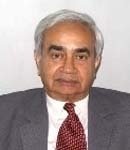Terrorism's True Roots
25 Jul, 2007 · 2339
P R Chari exposes some myths pertaining to the roots of terrorism and seeks the motivations behind terrorist acts
The arrest of doctors and engineers of Indian origin for their involvement in the abortive bombing attempts in London and Glasgow has destroyed many a priori beliefs.
First, that Indian Muslims have not been involved in Islamic militant movements like the al Qaeda, Taliban, Lashkar-e-Toiba, and Jamaat-e-Islami that have a global agenda to promote Islam. Indian professionals, all from Bangalore - India's showcase hi-tech city - were involved in the attempted bombings. In addition, there is considerable dismay that a doctor was involved, despite being bound by the Hippocratic Oath to save, and not take lives. Incidentally, Ayman al-Zawahiri, second-in-command of the al Qaeda movement, is an Egyptian medical doctor.
Second, that terrorists belong to the disadvantaged sections of society who fall easy prey to indoctrination by Islamic rabble rousers to undertake desperate ventures, and sacrifice themselves to advance their cause. The Indians involved in these incidents were well-educated and hailed from middle-class backgrounds - they were highly motivated, and not deluded, poverty-stricken individuals.
Third, that terrorists generally attack carefully selected targets to further their political agenda, and avoid alienating the general population. But, the targets chosen - a nightclub and city center in London, and the airport in Glasgow - served no particular political objective, except to create mayhem and inflict the maximum loss of lives.
What motivates these terrorists?
Lack of education and poverty can be ruled out. That education is a bulwark against terrorism has proved as false as believing that poverty is the impelling force motivating terrorism. Islamist terrorist organizations have easily recruited from the ranks of those with educated and wealthy backgrounds as in the case of the 9/11 hijackers. That terrorists and suicide bombers are half-educated, lumpen products of the madrassas is no longer true.
Is it their indoctrination in mosques and intimate contacts with fundamentalist religious groups? Here we come nearer the mark. Over the years the indulgence of state authorities towards religious and political leaders propagating incendiary beliefs has continued unchecked; mosques and Friday prayers have become venues for launching hate diatribes, rather than preaching religion to instruct the faithful. These provocative statements have an appeal for young persons who get swayed by their emotions, and are unable or unwilling to evaluate these diatribes in the crucible of reason. In many Islamic countries, official education is also indulgent towards violence being preached in the name of Islam, which assists the sponsors of terrorism in attracting impressionable young persons. Ironically, the question that aspirant suicide bombers should be asking their handlers is why they are so anxious to provide others an assured passage to Paradise, while denying themselves this signal honour!
Is it the lack of democracy that promotes terrorism? In Islamic countries monarchical regimes, military governments, and Islamic dictatorships deny their people democratic rights, forcing citizens to struggle to obtain even their minimum freedoms. India, quite assuredly, is a practicing democracy, though far from being a perfect democracy. Elections are regularly held, but the poor have not been empowered to claim their dues from the state and its corrupt bureaucracy. Social services, critically important for those at the bottom of the heap, are simply not available to them. Governments talk of increasing the budget for education, public health and so forth whenever the inadequacy of these social services becomes an issue. But there is no debate on ensuring that teachers will teach, that textbooks would become available, that doctors will come to work at their health centers or that these centres would have medicines and equipment. Since the mass media, especially television constantly eulogizes the lifestyles of the urbanites and the rich, the sense of injustice engendered in the weak and the deprived becomes a potent force motivating them to join the terrorists. It is a motivating factor that is largely unrecognized.
The conclusion is possible that ideological commitment infused by religious or community leaders, and the lack of the fruits of either social services or development to the un-empowered are more important factors influencing the growth of terrorism than the lack of education and poverty.
What can be done to change this situation? First, implement the law prohibiting inflammatory speeches being made against other religious and sectarian groups in the country. The Indian Penal Code treats such infractions as recognizable offences; yet the law becomes week-kneed in prosecuting rabble rousers like the Imam of Jama Masjid. Are they above the law? Second, review the course content of the madrassas and even government schools to ensure that they provide a secular education. Third, consciously work towards raising governance standards in the social sectors. It is well known, for instance, that rules which ensure teacher attendance have long disappeared, since they are often the unpaid agents of the political parties. This must be the worst-kept secret in the country.


